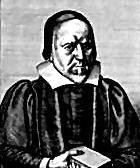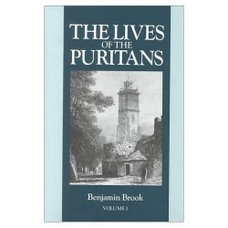New Edition of Ruth's Recompence
A new edition of Ruth's Recompence can be found here. We note
This thesis consists of annotations and an introduction which constitute an
edition of Richard Bernard’s Ruths Recompence (1628). This edition aims to provide
a more modern and accurate (though clarified) text than the nineteenth-century
edition edited by Alexander Balloch Grosart (1865). It also sets out to offer a more
comprehensive interpretation with an emphasis on a subject prominent in Bernard’s
commentary passed over in silence by Grosart, that is, the issues relating to women’s
conduct raised by Ruth’s approach to Boaz alone by night in Ruth chapter 3.
The text of this edition has been produced by applying Optical Character
Recognition to a copy of the 1628 edition in my possession. In presenting the text,
an editorial policy has been consistently followed, which is described in the Textual
Introduction. The main objective is to reproduce the original as closely as possible at
the same time as making the work accessible to the modern reader.
In the early modern period much was written about women’s conduct and how
they ought to behave. Ruths Recompence provides a specifically puritan perspective
on this issue. In the introduction, various kinds of literature about women in the
early modern period, such as conduct books and lives of women, are surveyed in
order to show the context in which Bernard addressed the conduct of Ruth and
Naomi. The editorial framework also analyses Bernard’s developing and to some
extent censorious evaluation of the women’s behaviour. Another subject relating to
women’s conduct addressed, chiefly in the introduction, is breast-feeding. Bernard’s
views are related to those expressed by the preceding commentator on Ruth, Edward
Topsell, and by a contemporary woman – the Countess of Lincoln.
The editorial framework draws on the work of commentators on Ruth
preceding Bernard, in the ancient and medieval as well as the early modern periods.
This reference to previous commentators is a significant part of the edition because it
shows where Bernard’s views are original. In the introduction biographical
information about Bernard himself, in particular, and also the earlier commentators is
provided. A tradition of commentaries on Ruth is thus depicted. It is argued that
Bernard’s significant contribution to this tradition is his application of his own theory
of preaching, set out in his The Faithfull Shepheard (first edition 1607), to Ruths
Recompence.
The present edition interprets various other aspects of the commentary, in
particular, those relating to Bernard’s theological position as a puritan clergyman
who was involved with separatism early in his career but later published attacks on
separatists and conformed uneasily with the Church of England. In the commentary,
he criticises Roman Catholicism, and expresses views on providence, predestination
and the Anabaptists. These subjects are commented on in the editorial framework.
Other subjects to which this edition draws the reader’s attention include Bernard’s
repeated reference to hierarchy in society and his admiration of the simple, primitive
legal system depicted in Ruth.
The introduction concludes with a glance at modern feminist scholars’ writing
on Ruth. The present edition aspires to make a contribution to feminist
interpretations of the early modern period, and it can be recognised that many of the
feminist features perceived in the biblical narrative by modern scholars are far from
the concerns of Bernard, who was in most respects a typically patriarchal clergyman
of his time.












No comments:
Post a Comment